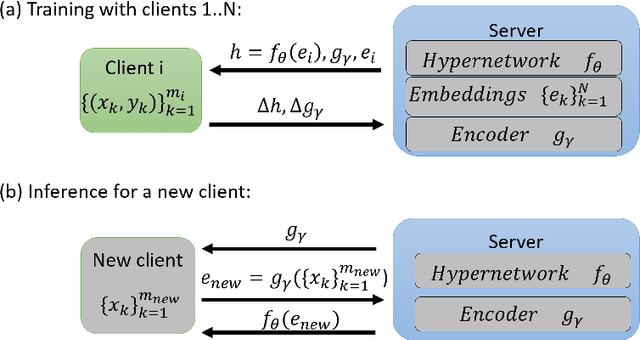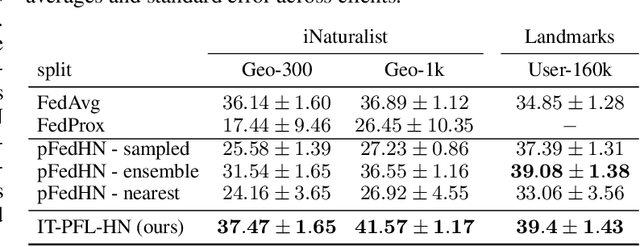Inference-Time Personalized Federated Learning
Paper and Code
Nov 16, 2021



In Federated learning (FL), multiple clients collaborate to learn a model through a central server but keep the data decentralized. Personalized federated learning (PFL) further extends FL to handle data heterogeneity between clients by learning personalized models. In both FL and PFL, all clients participate in the training process and their labeled data is used for training. However, in reality, novel clients may wish to join a prediction service after it has been deployed, obtaining predictions for their own unlabeled data. Here, we defined a new learning setup, Inference-Time PFL (IT-PFL), where a model trained on a set of clients, needs to be later evaluated on novel unlabeled clients at inference time. We propose a novel approach to this problem IT-PFL-HN, based on a hypernetwork module and an encoder module. Specifically, we train an encoder network that learns a representation for a client given its unlabeled data. That client representation is fed to a hypernetwork that generates a personalized model for that client. Evaluated on four benchmark datasets, we find that IT-PFL-HN generalizes better than current FL and PFL methods, especially when the novel client has a large domain shift. We also analyzed the generalization error for the novel client, showing how it can be bounded using results from multi-task learning and domain adaptation. Finally, since novel clients do not contribute their data to training, they can potentially have better control over their data privacy; indeed, we showed analytically and experimentally how novel clients can apply differential privacy to their data.
 Add to Chrome
Add to Chrome Add to Firefox
Add to Firefox Add to Edge
Add to Edge